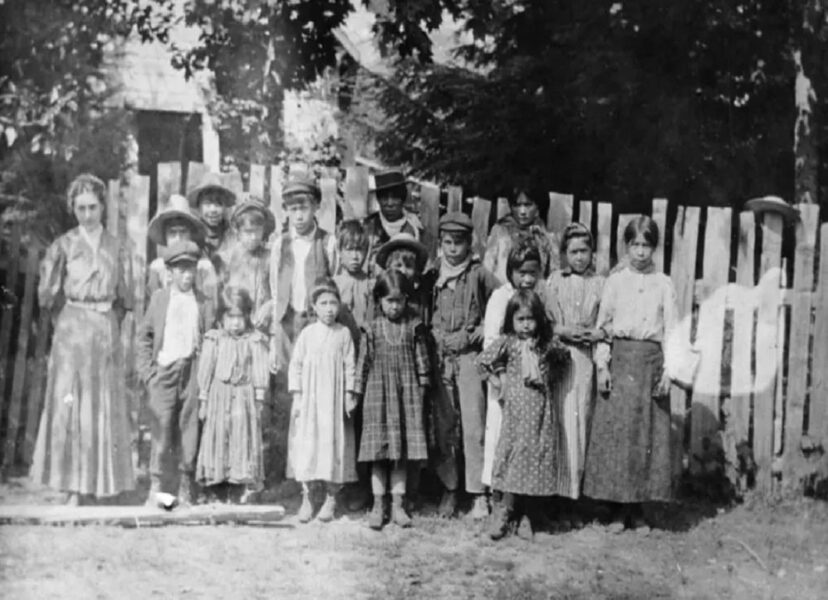Canadian Government Reaches Agreement To Settle Percival Class Action Lawsuit
- TDS News
- Breaking News
- Indigenous
- January 4, 2023

Indigenous people in Canada have a long history of being forcibly removed from their homes and communities, and being placed in boarding schools or other institutional settings such as Residential and Day Schools. In recent years, many indigenous people have come forward to speak about the abuse and trauma they experienced while living in these institutions.
One way that indigenous people have sought justice and compensation for the harm they suffered is through class action lawsuits. A class action lawsuit is a legal proceeding in which a group of people with similar claims bring a case to court as a group. In a class action lawsuit involving indigenous people placed in boarding homes, the plaintiffs (the people bringing the case) would typically be seeking damages for the physical, emotional, and psychological harm they suffered while living in the homes.
In some cases, the class action lawsuits have been brought against the government, alleging that it had a duty of care to protect the indigenous plaintiffs and failed to do so. In other cases, the lawsuits have been brought against the operators of the boarding homes themselves such as Churches and other religious organizations, alleging that they were negligent in their treatment of the indigenous plaintiffs.
In the case of the Federal Indian Boarding Homes class action lawsuit, it was filed by Reginald Percival at the time he was 64 years of age. At 13, Mr. Percival was taken from his home on the Nisga’a Nation and forced to attend a government-run boarding school from 1968 to 69.
Late Tuesday, the federal government announced it has Agreement-in-Principle to resolve the Percival class action lawsuit involving the Federal Indian Boarding Homes. From September 1, 1951, to June 30, 1992, thousands of Indigenous people lived in boarding homes under federal supervision to attend school and suffered cultural loss and abuse. The signing of the Agreement-in-Principle marks a significant milestone for them.
“I was in a boarding home after I was in Indian residential school. This has always been a missing part of the process. It is like a cut with a bandage, but half the cut is not covered, and that half is the boarding home experience. We never dealt with the whole experience. I am really pleased that we reached this agreement.” Kenneth Weistche, Court-appointed representative plaintiff for the Quebec sub-group
“This Agreement-in-Principle is a milestone for thousands of Indigenous Peoples who suffered abuse while residing in a boarding home placement overseen by the federal government between 1951 and 1992. Canada will continue to work with the plaintiffs towards a final settlement agreement and approval of the Federal Court in 2023.” Marc Miller,
Minister of Crown-Indigenous Relations
In order to succeed in a class action lawsuit, the plaintiffs must be able to show that they have suffered harm as a result of the actions (or lack of action) of the defendants (the people or organizations being sued). In the case of the Percival class action lawsuit against the Canadian Federal Government, the plaintiffs were able to successfully prove they suffered harm from being placed in the Federal Indian Boarding Homes and will be awarded damages to compensate them for their losses.
- Key elements of the Agreement-in-Principle include:
- Individual compensation of $10,000 to recognize the losses caused by placement in a boarding home by Canada for the purpose of attending school from September 1, 1951, to June 30, 1992;
- Compensation, ranging from $10,000 to $200,000, for incidents of physical and sexual or other abuse while residing in a boarding home placement based on severity of the abuses suffered;
- $50 million will be invested to support the commemoration, healing, language, and culture;
- Funding to support class members who require assistance from legal counsel and other forms of support on their abuse claims.
- Approximately 30,000 to 35,000 people attend the Indian Federal Boarding Schools
It is important to note that class action lawsuits can be complex and can take many years to resolve. As in this case, it was filed in September of 2019, and by many accounts, it was settled relatively quickly compared to other class action lawsuits that have exceeded a decade. The settlement of the Percival class action, offers a way for indigenous people who have experienced abuse and trauma while living in boarding homes to seek justice and hold those responsible accountable for their actions.
Image source, Klein Lawyers








